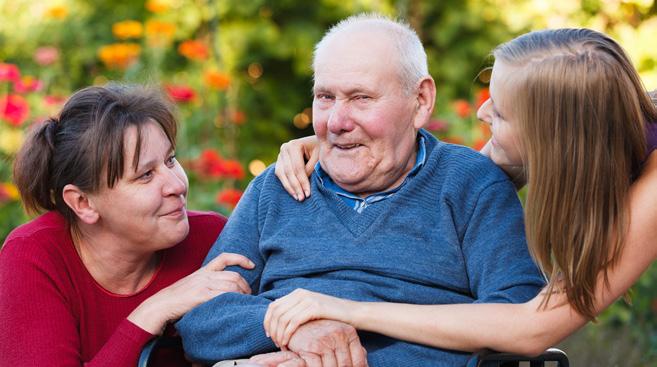
2 minute read
Personal and domestic assistance
As you age, it may become harder to look after yourself or stay on top of housework. To help you maintain your health and dignity or live comfortably and safely, respectful and qualified carers can come to your house to assist you.
Accepting that you need help in performing these tasks can be hard and sometimes people think it is a sign that you’re losing your independence.
However, being supported by carers as you age in your home allows you to continue to enjoy the lifestyle you want and manage your health from home.
Personal assistance
Personal care tasks can include:
◆ Showering and bathing
◆ Dressing and undressing
◆ Grooming and shaving
◆ Changing continence aids
◆ Assistance with toileting
◆ Dental care
◆ Repositioning bed-bound clients
◆ Assistance with mobility like getting out of bed and moving around the house
◆ Eating and drinking
The level of help you require will depend on your health and ability. For some people, having a standby support worker for emergencies during the morning shower is enough.
Others may need someone to towel them dry and help with dressing.
Whether you need two hours of personal care every now and then, a few times a week, every day or 24 hour care, you can access this support through a range of private providers or with assistance from the Government funded Commonwealth Home Support Programme (CHSP) or a Home Care Package (HCP).
Depending on your own capabilities, you may receive a little or a lot of help around the home. Personal care and domestic assistance are the most common in home supports people seek. Services range from meal preparation, help with shopping or cleaning, to assistance with showering and getting dressed.
Feeling connected
Some older people struggle with the feeling of personal intrusion when receiving home care. Your provider’s staff will be qualified, caring and respectful when providing this care, and should make sure you are in a nurturing and supportive environment so you can easily accept help in your home. Staff should be making the effort to talk you through every stage and make the whole process comfortable for you.
Personal care workers will not only provide you care, they will also develop a strong relationship with you. This can make the whole service experience more enjoyable and it will also help combat loneliness.

Older people are more prone to feelings of loneliness, which can have a huge impact on a person’s wellbeing. A regular friendly face around the home can make you feel connected and social.
Additionally, having assistance around the home means you have more energy to get out and about and stay connected with your wider community network.
Domestic assistance
If you need help keeping your house tidy, doing laundry, preparing food or stocking your fridge or pantry, domestic assistance can help.
Reduced or limited mobility or cognitive decline can make these weekly, and sometimes daily, tasks challenging.
You may have a neighbour, friend or family member come in regularly to help you with these tasks or you may prefer to hire a professional service to come in at set times to do those jobs for you.
Having domestic assistance as part of your CHSP or HCP will give you peace of mind knowing your house is clean and you’re able to live comfortably and safely.
Domestic assistance services include:
◆ Household cleaning
◆ Washing and ironing clothes
◆ Grocery or retail shopping
◆ Making beds
◆ Preparing food
Domestic assistance can be provided on a daily, weekly or fortnightly basis depending on your needs and the domestic tasks required.
For example, washing clothes and grocery shopping could be undertaken once a week and household cleaning may only be needed once a fortnight. Although preparing food is typically a daily job, your support worker could prepare a number of meals in your home, then put them in a freezer for you to eat when you want.
You’ll find home care providers that offer personal or domestic assistance in your area in the Resources section starting on page 121.










